What Is Noise Pollution?
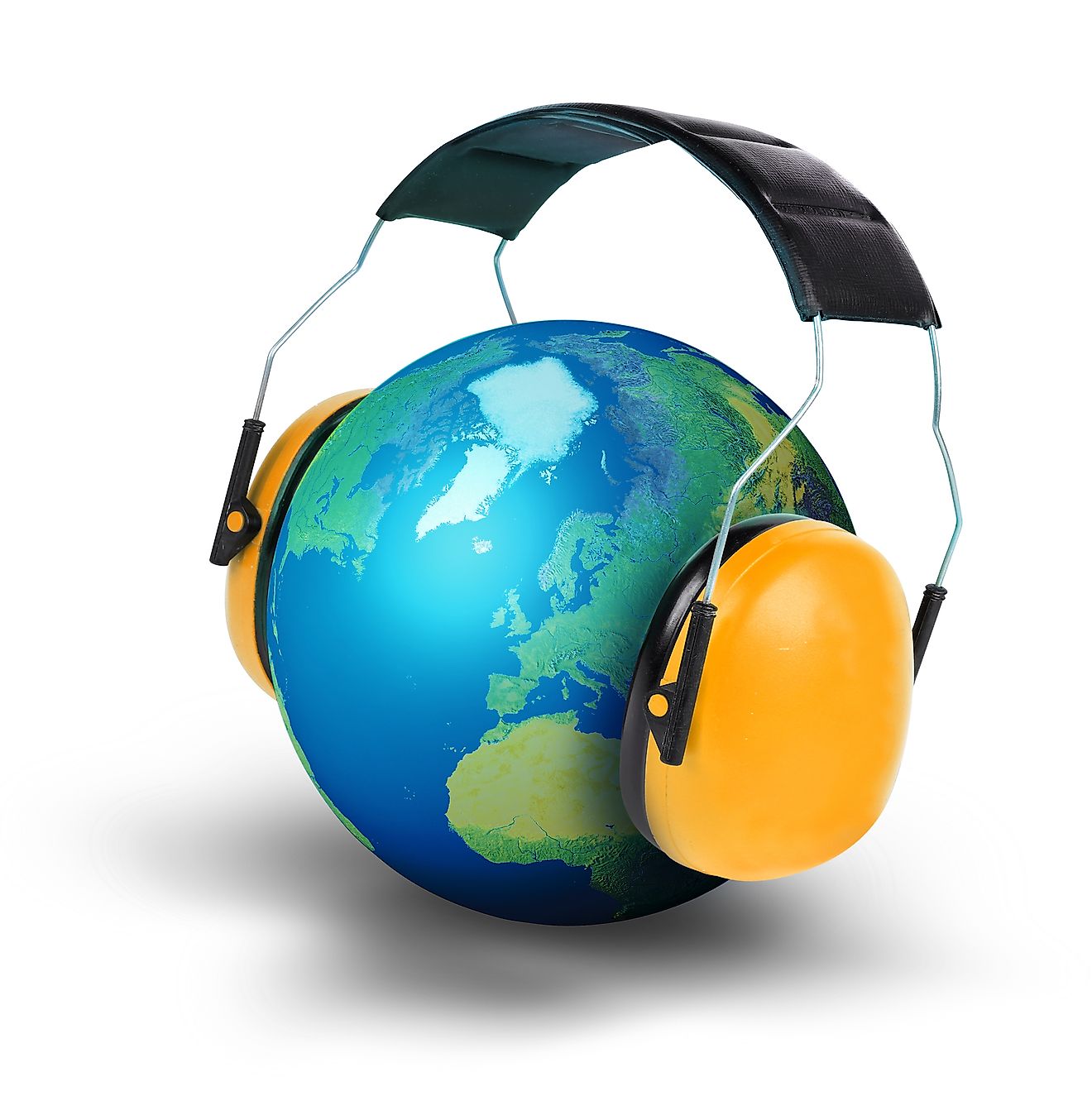
- Noise pollution may cause increased heartbeat and elevated blood pressure, which can be fatal for individuals at-risk.
- Wildlife activities such as finding desirable habitat and mates, avoiding predators, protecting their young, and establishing territories, are all dependent on the acoustical environment.
- The most common social costs of noise pollution arise from disturbances at work and sleeping patterns, which lead to lethargy, decreased social engagement and lowered work performance.
Although noise pollution affects all creatures of this Earth, most people have gotten so used to it, that many fail to recognize it as such. Aside from the underpinned physical malaises, such as hearing loss and heart-related issues, the detriments to human health that noise pollution may induce include increased anxiety, lack of concentration, emotional imbalance, lowered work productivity, nervousness and neurosis, uncertainty, and argumentative behavior. Noise pollution also affects animals by subduing their acoustic cues, which are vital for their day-to-day being, survival, communication, and continuation of their species.
Contents:
- Causes Of Noise Pollution
- Effects On Human Health
- Effects On Marine Life
- Effects On Other Wildlife
- Social Costs and Economic Costs
- Communication Issues
Causes Of Noise Pollution
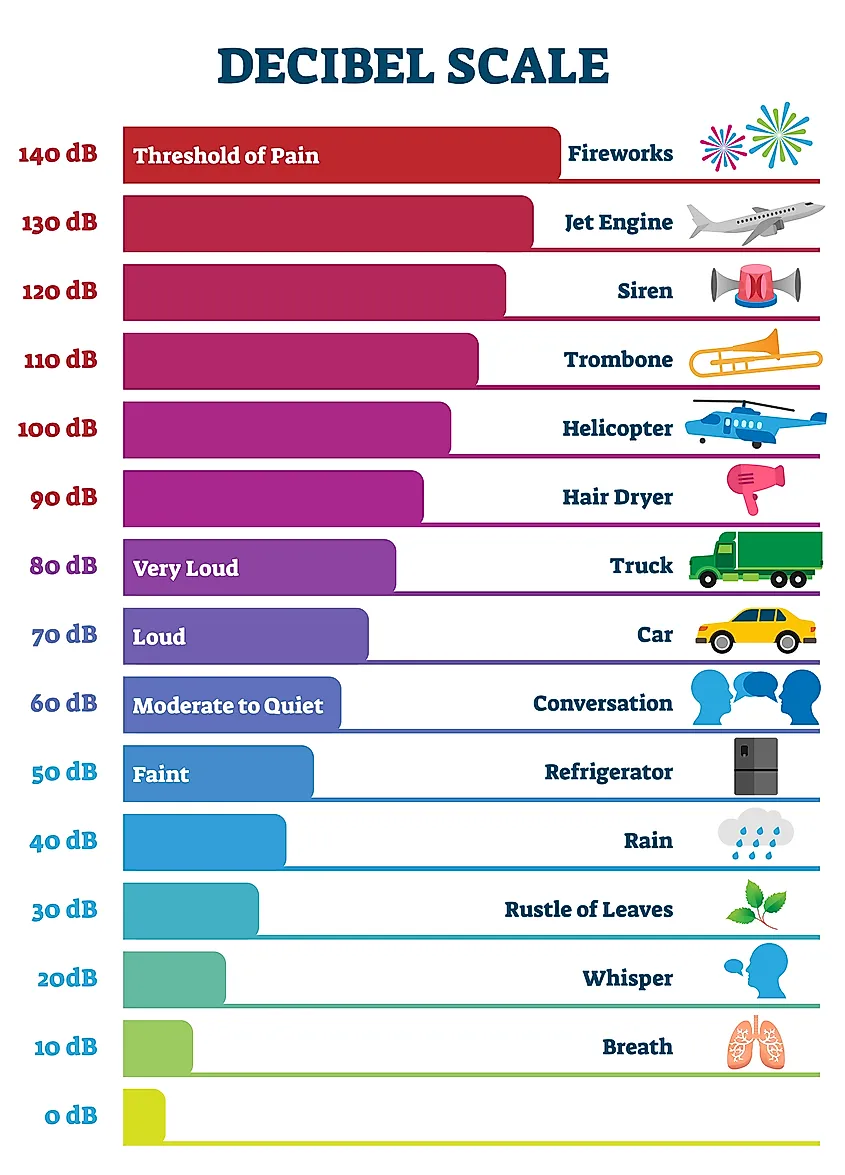
Think of the world millions of years ago, before people came around. The natural environment is void of human noises and their inventions, or as defined by the term, noise pollution. The most common types of human-made noise pollution affect both the natural world and humans themselves.
Conflict
Conflicts-generated noise pollution, such as gunfire and explosions increases stress-levels of those present and far away, while non-violent conflict, including yelling, arguing and unnecessarily loud speaking is linked to stunted child development.
Traffic
This is perhaps the most common noise pollution in today’s world. A mere increase of 10 dB of noise pollution created by regular traffic leads to a 7 to 17% increase in the risk of developing high blood pressure and other heart-related problems for those exposed to it. Sirens, such as ambulance, police and fire trucks, although necessary, are also a type of noise pollution that can potentially cause stress for individuals.
Household Sounds
While occasional TV-watching or dish-clanking may not put one’s health in immediate danger, excessive noises including grinders, vacuums, and persistently high-volume on TV, can become concerning in the presence of children, sensitive individuals, or anyone exposed to such for long periods of time.
Concerts And Events
Fireworks, fire-crackers, and the use of microphones and loudspeakers which can be heard from far outside of the venue can be enjoyed by some but cause anxiety for others.
Industrial Sounds
Even though construction workers are instructed to wear special gear to protect their hearing, chance and overtime exposure to loud working conditions still carries psychological and physical implements. Similarly, those having to deal with new construction outside of their home or workplace can testify how disturbing it is for both, relaxation and productivity.
Workplace Sounds
Not only do these cause disturbances and lessen work productivity, but can range from being non-stop annoying to posing hazards by impairing the sounds of incoming danger.
Negative Effects of Noise Pollution
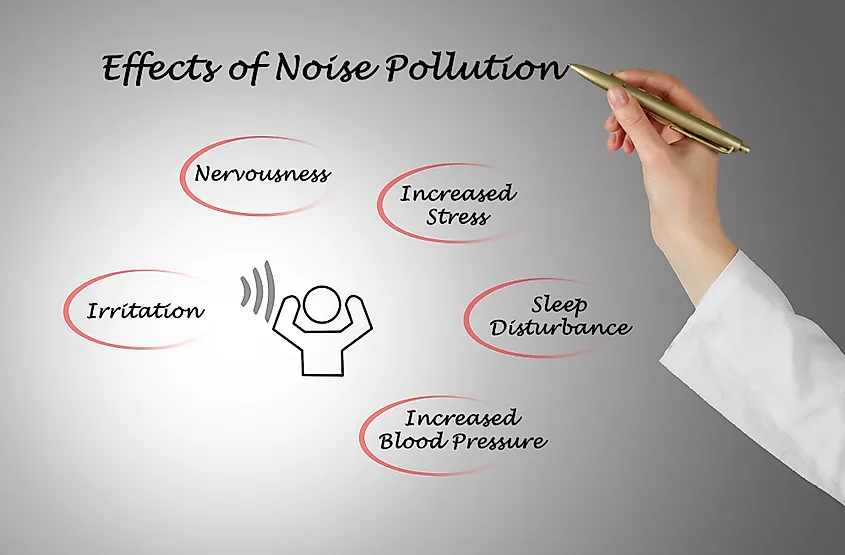
Effects On Human Health
Noise pollution can be very troublesome for human health, as well as lead to many diseases, including hearing loss, hypertension, other cardio-vascular malaises, dementia, and psychological dysfunctions, among others. Furthermore, noise pollution is very potent in causing adverse child development effects and erratic sleep patterns, both of which carry major short- and long-term consequences.
Cardiovascular Problems
Inreased heartbeat and elevated blood pressure is a natural response to a stimulant such as loud noise. However, persistent increase in both can be fatal for individuals at-risk.
Hearing Loss
Exposure to loud sounds over long periods of time kills the sensitive hairs within the inner ear, responsible for catching the tiniest of sounds. Therefore, individuals who work consistently in loud environments are likely to develop hearing issues. Loud working conditions are also precarious in that they may prevent one from hearing danger coming their way, whether in an office environment or at a construction site.
1.3 billion people worldwide suffer from various degrees of hearing impairment, according to the World Health Organization, while 10% of the world’s population is currently exposed to noise pollution which will give them hearing problems later in life. Many countries have implemented policies for working and public spaces, ultimately bettering the quality of life by being able to hear one’s mate to preventing hearing impairment with age.
Annoyance
The European Commission also classifies personal enjoyment of music, video and other audio sources without headphones in the presence and creating annoyance for others, as the second most precarious outcome of noise pollution, after the physical impacts. According to the review, annoyance leads to anger, stress, and other negative feelings which can transfer into variable reactions, from decreased work productivity to regrettable actions.
Mental Health Issues And Sleep Disturbances

Sleep, a vital need, can be greatly affected by noise pollution, leading to lower levels of alertness, exhaustion, anger, and the general quality of life. Studies suggest that a sleepless night can cause health problems as soon as the next day. Imagine how persistent nocturnal noise pollution can affect one's health in the imminent future with life-long consequences.
Individuals residing near airports or train-tracks are likely to experience sleeping problems. If the brain fails to get used to the environment of rattling trains or airplane engines, to receive proper rest at night, sleep deprivation and psychological consequences are nearly guaranteed. Similarly, a study involving 2,844 kids attending 89 schools near major airports in Amsterdam, Madrid and London showed clearly stunted learning and cognitive development through cases of reduced memory, reading ability and test performance.
Effects On Marine Life
The two most prominent ways in which marine life is affected by noise pollution are shipping activities and seismic waves created from surveying the sea. Although spending much time on surfaces, sea lions have been documented to go deaf from ship noises, including loud-blaring horns and the underwater engine roar.
To find oil and gas in the underwater floor bed, record seismic activities, and scour for ship wrecks, valuables and more, sea surveying is completed by firing loud sound pulses from compressed guns into the water surface. Although undetected by the human ear, these are disturbing to the species living in the water, whose hearing is adapted to those frequencies for prey and survival. Intercepting animal communications, disorienting and causing great stress to the dwellers of the natural marine environment, prevents them from leading their natural lives. Fish larvae, for example, are unable to find their homes by following the sounds of coral reefs. Similar to how stress kills humans, when the marine life is exposed to long-term stress, species are reported to develop reproductive issues and other health problems, as well as live shorter, disturbed lives.

Some countries have implemented strategies to lessen the stress caused by sea surveying, such as beginning with short, infrequent sound pulses, to prevent frightening the animals into panic mode, but easing them in. Since eventually the surveying reaches its optimal level of firing pulses for full effectiveness for its purpose, and may last for long stretches of time, the effectiveness of this practice is still studied and debated. Surveyors in other countries are strictly instructed to avoid the areas of great animal presence, or stop surveying completely, if endangered species enters the surveying zone. Effective in that it limits the areas in which marine life is affected, complete avoidance is not guaranteed, while many other animals are still exposed to non-reversible damage. Still, other countries instruct the surveyors to switch up the areas of surveying.
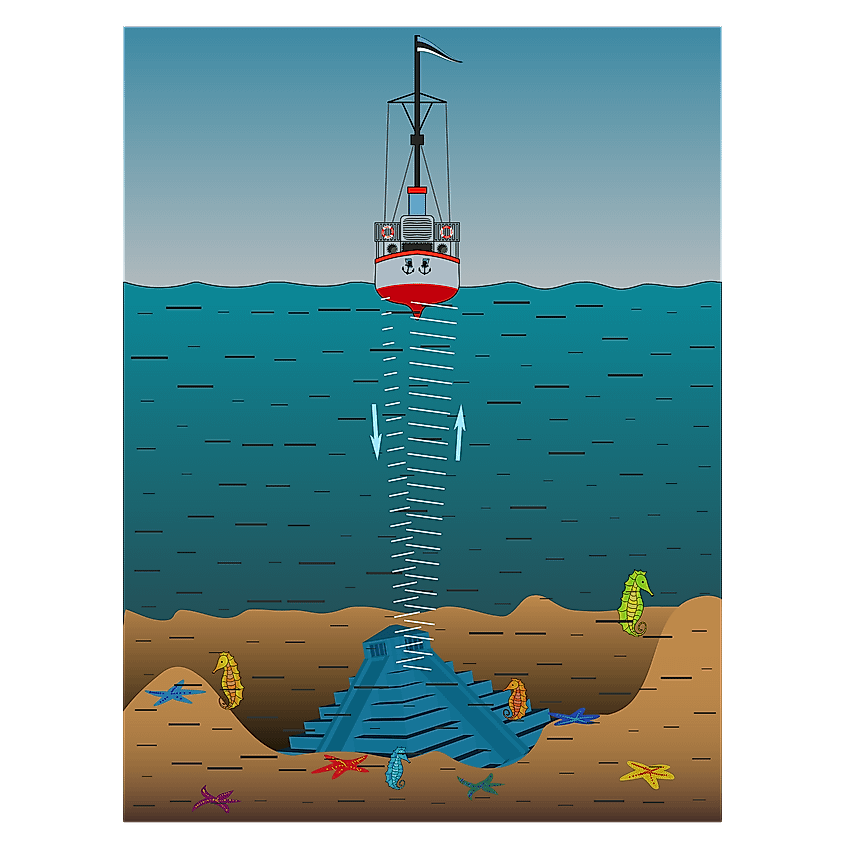
To better address this problem while and provide effective surveying results, Douglas Nowacek, a conservation ecologist at the Duke University Marine Laboratory in Beaufort, North Carolina, stands for optimal data collection methods, where pulses are not fired spontaneously. He believes that if each pulse is purposeful, it limits the need for firing consistent pulses which expose the marine life to continuous potential damage. He also complements those groups of scientific researchers who gather together from different countries to scour the same area together, and move on afterwards. With many groups coming one after another, having consecutively established nothing of value in the area, make much of today’s surveying completely redundant, according to him.
Effects On Other Wildlife
The most prominent ways in which the wildlife has suffered from excessive and extensive noise pollution, is having their natural instincts numbed, through stress, and having to migrate to areas outside of their comfort zone. Wildlife activities, such as finding desirable habitat and mates, avoiding predators, protecting the young, and establishing territories are all dependent on the acoustical environment.

A singing bird. Birds use songs to communicate with each other but environmental noise subdues their sounds making life difficult for them. Image credit: Yuriy Balagula/Shutterstock.com
Singing species of birds who use their voices to communicate, relax and "let go" of the tension, as well as to carry out the necessary activities for their survival, such as finding mates, establishing habitats, avoiding predators, and communicating with their young to warn of danger, have had to adapt to the human world becoming louder. Many can now only be heard singing at night, when they are not consistently disturbed by loud traffic noises. Similarly, having found a climatically comfortable niche in Central Australia, the sweet, little, parrot-like Zebra finches, have been documented to live shorter lives from the stress levels caused by increased traffic.
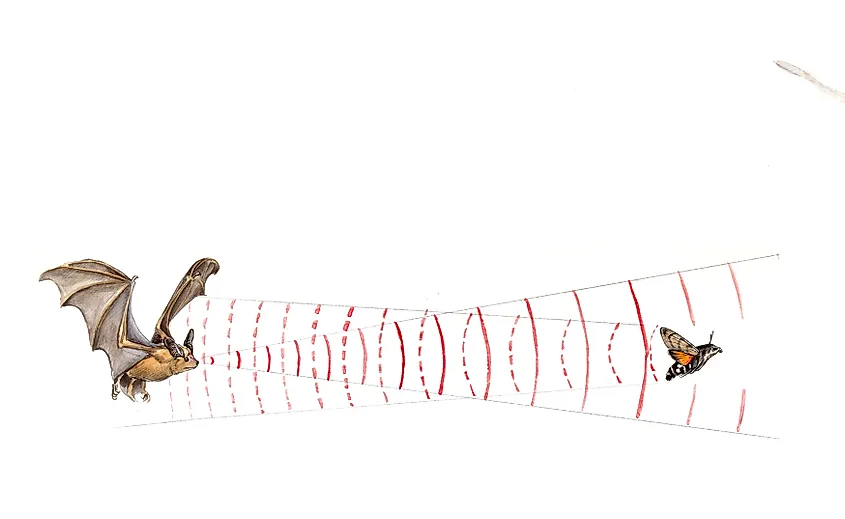
Noise pollution has also reduced the hunting efficiency of bats, which communicate with and rely completely on their sensitivity to hear high-pitched sounds. On the other hand, male frogs have had to adopt higher-pitched calls to be heard over nearby traffic, which is less than optimal for mate-seeking, as their female companions prefer a lower pitch, which signals for more experienced and virile males who can produce hardier offspring.
For other animals, the only way to deal with increased human activity and new traffic is by avoiding areas they would normally trespass and through consistent migration to less optimal conditions than they would naturally thrive in. Having to settle in places with limited water supply, different landscapes, climatic conditions, predators or food shortages, have all factored into the decreased number of species representatives, and endangered many.
Social Costs and Economic Costs

The most common social costs of noise pollution arise from disturbances at work and sleep deprivation, which lead to lethargy, decreased social engagement, and lowered work performance. These contribute directly to the economic costs, from disempowering the workforce and lowering productivity, to the major strain encountered by the health system for treating numerous physical and psychological malaises caused by noise pollution.
Communication Issues
Excessive noise pollution causes misunderstandings, can alter one’s emotional state and hamper feelings. It can even change the course of monumental events, from interrupting important business deals to creating confusion during meetings, carrying lasting effects for a country.











